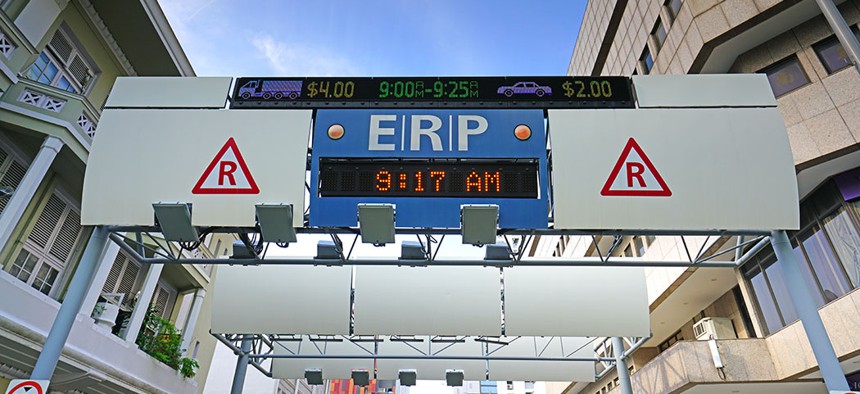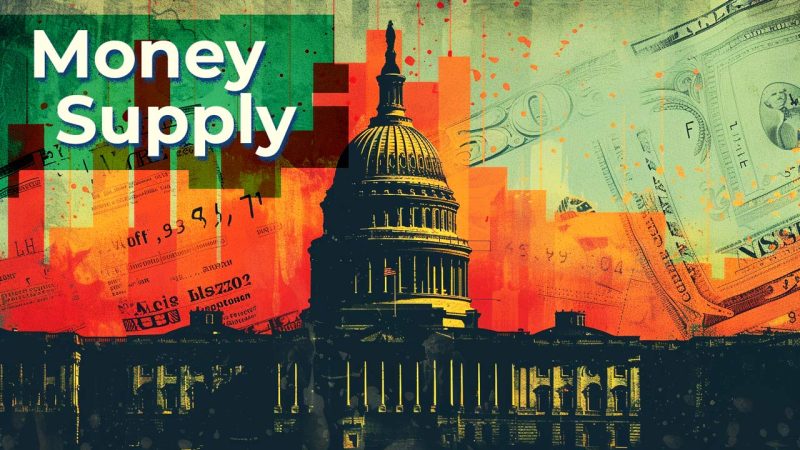In a series of recent posts, Tyler Cowen has taken the view that congestion prices in major downtowns are a bad idea. This is what one might expect of a typical New Jerseyan, but not a typical economist.
This article was written by Salim Furth and originally published by Market Urbanism.
The writing in these posts is a bit squirrelly (or is it Straussian?), but as best I can make out, Tyler is deviating from the mainline economic views of externalities and prices by arguing a few points:
- Urban serendipity and growth are high-value externalities quite distinct from the usual efficiencies of combining large amounts of capital and labor in downtown office towers.
- Occasional visitors to the city find very high value there (presumably via a long-right-tail distribution)
- including by creating demand for new goods
- Congestion pricing will (a) decrease the number of people in the city, (b) particularly high-value visitors.
He also makes some specific critiques of the mechanism design of the proposed NYC congestion charge. It’s worth getting that right, but let’s leave the technicalities aside here.
Tyler’s points – as I’ve summarized (or mangled) them – seem like a mix of reasonable and wrong, although in several cases difficult if not impossible falsify. I’ll tackle these points in a completely irresponsible order.
2. Distinguished visitors
On the second point: Diminishing marginal returns is enough to give Tyler’s argument the benefit of the doubt. The first visit to a symphony or subway likely has a bigger inspirational impact than the seventh or seven-hundredth. And outsiders may bring insights to the city in an Eli-Whitney-and-the-cotton-gin way.
But for consuming new goods? Perhaps visitors’ demand is enough to sustain new imitations of low-end consumer goods (like a McDonalds in Chennai, if there is one). But for narratives of urban creativity, I prefer Malcolm Gladwell’s account of Airwalk shoes or Peter Thiel’s identification of eBay “PowerSellers” as a stepping stone for PayPal. A concentrated, differentiated – weird – population is better grounds for scaling innovation.
Cities are extremely good places to form weird communities. But slow travel within the city hurts it. Just as Alain Bertaud argues for job access, effective social access is limited by the human density and travel speed.
3b. The stay-at-homes
Tyler affiliates “congestion pricing” with the provincial sentiment “residents good, visitors bad.” This isn’t my interpretation, but I’m not a New Yorker.
As for who is likely to be dissuaded from coming to New York at all by an additional $23 driving fee, it is likely to be someone for whom the $23 represents a large percentage increase of the cost of their trip. For a visitor from outside the metro area making a vacation or work visit, the fee is a minor nuisance, perhaps 5% of a two- or three-day trip that includes expensive parking, gas, a hotel, tickets, and meals. By contrast, a Jersey City couple thinking about driving in for an ice cream and a walk in Central Park might see their trip cost double.
1. Mode shift, job shift
In the long run, the person most likely to stop coming to Manhattan entirely is the car commuter who really dislikes or fears transit. In the short run, car commuters and other city regulars – people for whom the cost would add up day after day – would be most likely to stop driving. Many would switch to other modes or work more days from home.
Ultimately, some of those people would decrease their labor supply to the city. Since drivers tend to be the highest-paid workers, there could be an echo of the 1970s trend of moving corporate headquarters to the CEO’s backyard in Westchester County.
Unlike Tyler’s narrative, this is a very boring risk of inefficiencies in capital-and-labor markets. In fact, maybe nudging some of the too-efficient, too-well paid financiers out of the city will lower prices and create more room for urban creativity, just as tariffs and Luddism can boost growth by forcing people to solve problems creatively instead of efficiently.
3a. Fewer cars…fewer people?
I addressed the “particularly” clause of the third bullet. But there’s a more basic question: Will congestion pricing increase or decrease the number of people in a central city? I wasn’t able to find research on this. One plausibly causal study found that an unexpected congestion price increase in Singapore sharply lowered the value of retail real estate, but not office or residential. London statistics show that entries have grown post-congestion price. This isn’t causal, but it does bring home just how small cars can loom in the social life of a major downtown.

Bus traffic is a key variable here: to the extent that congestion prices speed up bus service (including jitneys or informal car-shares), faster traffic could make trips to a center much more viable. My prior is that this effect would predominate in developing world cities (especially those without rail transit) but be weaker in the developed world. Still, London buses counterbalanced most of the private car decline in the first two years of congestion pricing.
Will congestion pricing improve the quality of life for non-car users and induce more demand to be downtown? Air quality will probably improve, but not a huge amount. There’s no difference between sitting at a café while cars pass at 10 mph instead of 5 mph.
The steel-man case for congestion pricing is that the authorities will spend the money as NYC’s have promised, to improve transit, and will be sufficiently defensive of their scheme to follow through. Significant service improvements on transit could lure far more visitors into downtown (since the price of a transit trip in NYC is mostly inconvenience and distaste), generating the kind of eucongestion that Tyler argues is so essential to urban creativity.





